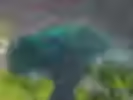Everything You Need to Know About Blue Heart Springs, Idaho
- Mar 18, 2025
- 4 min read
Updated: May 2, 2025
For kayak rentals, boat tours, and more information click here:
As a teenager after hearing about the bubbling blue sand that you could swim down to, I was determined to see it for myself. At the time however, there was no easy access to get to Blue Heart Springs.
I eventually made it to Blue Heart with my cousins, but it involved getting locked on private property and knocking on random houses’ doors to get let off the property we didn’t know we were trespassing on.
Luckily today there are a lot easier ways to get to Blue Heart Springs.
And, while you’re there, you can test your nerves in the 58-degree water by diving to the bottom and bringing up some of the “blue” sand.

What Is Blue Heart Springs
The Snake River Plain Aquifer makes up most of southern Idaho and is essentially a great basin that collects, filters, and transports water across the area. Blue Heart Springs is one of the locations where the aquifer releases its crystal-clear fresh water.
In fact, most of the Snake River Plain Aquifer empties near and around Blue Heart Springs. Niagara Springs State Park, 1000 Springs State Park, and Box Canyon (all of which are within 20 minutes of Blue Heart) are a few of the other places where the aquifer releases its water.
Blue Heart Springs itself is tucked away at a bend in the Snake River and forms a small cove. Looking down through the water the sand appears to be bright blue, but because of certain minerals and light refraction if brought to the surface the sand is a dark grey/black color.
If the water is smooth on the surface, or if you dive down with goggles on, you can see where the water comes up out of the sand and creates rings of sand bubbles.
After getting out of the freezing water go warm up on all the sun-heated smooth black rock surrounding the springs. All in all, it is a great place to explore and spend a summer day.
How to Get There
Blue Heart Springs is located along the Snake River in Southern Idaho about 40 minutes from Twin Falls or about 1.5 hours from Boise.
Like I said above there are a few better was to get there compared to when I was young.
Self-Propelled Watercraft
If you have your own kayak or paddle board, the closest place to launch would be at Banbury Hot Springs. They charge $10 for a launch pass, which needs to be purchased online, and they are closed on Sundays. From the boat ramp at Banbury Hot Springs, Blue Heart is about a mile and a half downstream (north). It normally takes about 30 minutes to paddle there and about 45 minutes to paddle back upstream when you’re done. Along the way, there are also a few islands that you pass as well as the confluence of Box Canyon and the Snake River.
If you don’t have your own equipment, you can still make it to Blue Heart Springs. Banbury Adventures is a kayak and paddle board rental company located at Banbury Hot Springs. They offer kayak and paddleboard rentals and set you up with everything you’ll need for the trip.
Also, if it’s not warm enough outside to get sufficiently warm after swimming in the Blue Heart, you can pay the entrance fee and spend the rest of the day in the geothermal hot pools at the Banbury facility.
Motorized Watercraft
Banbury Hot Springs does not allow motorized watercraft to be launched from their facilities because the river is rather shallow and hazardous around that area.
If you want to take motorized watercraft you have a couple options for launching.
1000 Springs Resort is the next closest launching area, which is located 3 miles north (downriver) of Blue Heart Springs. They charge $5 to use their boat launch and are closed on Mondays.
Owsley’s Waterfront Park is a state funded park, picnic area, and boat ramp. Launching there is free, but it is also the furthest from Blue Heart Springs. The Springs is about 6 river miles upstream from the park.
The Scary Future of Blue Heart Springs
Over the last 5 years, Blue Heart popularity has increased significantly. There have been different social media campaigns and a feature on a CNN documentary of the area. With all this increased media on Blue Heart Springs the traffic there has skyrocketed. On weekends, the springs tend to be packed with both motorized and non-motorized watercraft.
Just last year some of the effects of this increased traffic have come to light. Due to increased boat traffic an invasive species of water plant has been discovered in the springs which has the potential to completely cover the bottom of the springs and discolor the springs entirely.
The Idaho State Department of Agriculture has been meeting with different stakeholders to develop a plan of action for addressing the issue of the aquatic plant life. During the summer of 2021 the ISDA was able to remove a part of the aquatic life, but it is not known what the impact of that will be yet.
Until more is decided on a plan of action I encourage you to maintain a high level of respect for Blue Heart Springs by practicing Leave No Trace principals, and if at all possible, take only non-motorized watercraft to Blue Heart Springs.
I hope that future generations will be able to have the same awe I had as a kid towards discovering Blue Heart Springs and experiencing first hand, the beauty of the place.